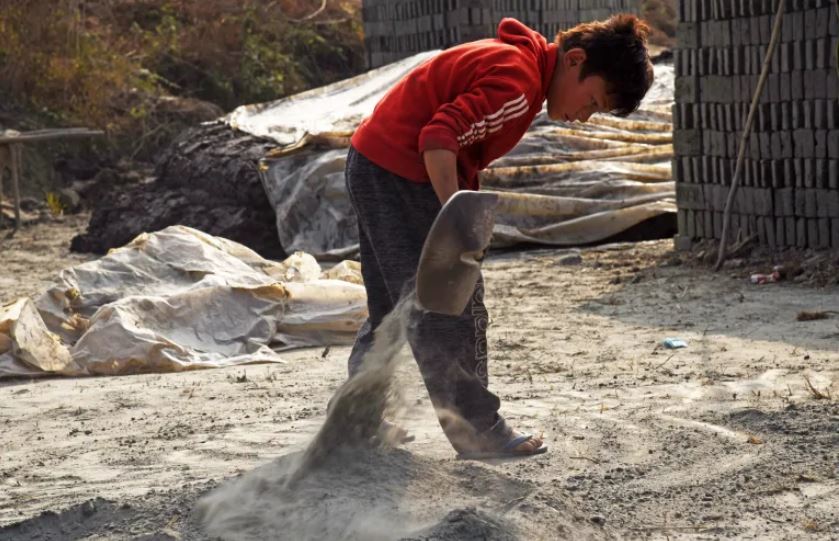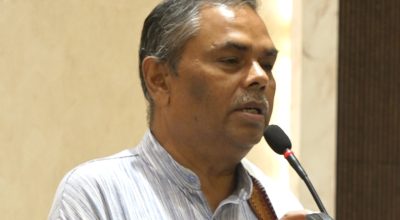
Kathmandu, April 29: The number of industrial enterprises in the country not paying the labourers minimum wage has risen by six per cent and reached 21.7 per cent, according to a report of the GEFONT.
The General Federation of Nepalese Trade Unions (GEFONT), a labour union affiliated with the CPN-UML, unveiled the Labour Audit Report- 2080 BS in a press conference here today, which revealed the startling facts about the condition of labourers and daily wagers in Nepal.
The government of Nepal has determined Rs 17,300 per month as the minimum wage in Nepal.
The report stated that the situation of implementation of minimum wages and facilities for the workers was becoming critical in the country. Much to the dismay, situation of implementation of minimum wage in industrial enterprises, where the union is active, is not much rosy from what it was then.
According to the finding of the GEFONT, 15.30 per cent industrial establishments had not paid their workers minimum wage in 2079 BS.
Similarly, 72.6 per cent companies were found not paying minimum wage and overtime perks to workers hired through labour outsourcing companies in 2080 BS.
The exploitation of labour of the labourers is approaching towards a critical point, cautioned the report.
Although the Labour Act-2074 BS stipulates that the workers cannot be forced to work for more than eight hours a day and 48 hours a week, it is far from effective implementation, the report lamented.
However, the scenario of child labour paints a slightly a brighter picture as per the report. The industries employing children as workers were decreasing lately.
In the year 2079 BS, the industries using child labour was at 0.75 per cent which reduced to 0.6 in 2080 BS.
Speaking in the press conference, GEFONT’s President Binod Shrestha read out a 25-point declaration prepared by the union in the context of upcoming May Day (International Labour Day on May 1)
The union has been complaining with the government regarding lax implementation of the Labour Act-2074 BS which aims to secure the welfare of the workers.
In the 25-point declaration, the Union demanded an orientation session for the labourers about social security fund. It also underscored strict implementation of the minimum wage provision and removal of the provision of not filing the case against forceful transfer in the labour court among others.
Likewise, Working Journalist Association’s Chairperson Janmadev Jaisi argued that the syndicate system in the industry and political instability had caused economic crisis in the country which, according to him, had hit the daily wagers the hardest.












